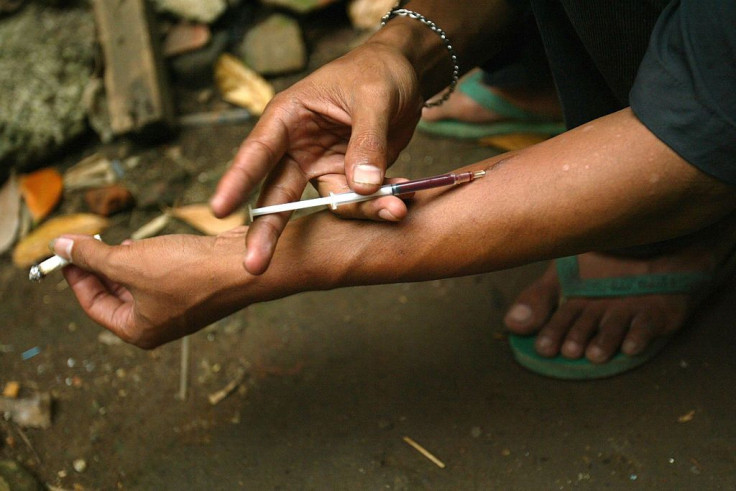How To Break The Generational Cycle Of Drug Addiction

For the moment, let's set aside the negatives; that studies show drug and alcohol dependence have a genetic link, or that even without this link, exposure to an environment in which drugs and alcohol are abused may increase the risk that a child will follow suit.
Set aside the seemingly never-ending headlines about epidemic drug abuse, and the resultant political maneuvering around potential solutions.
Let's start with the big picture: that no single factor dooms someone to a life of addiction, and that understanding risk factors can empower parents — including those who have themselves struggled with substance use disorders — to prevent the susceptible from becoming the inevitabile.
Who Does Drug Abuse Impact?
Though some people might only experiment, and never transitioning into full-blown drug addiction, everyone is susceptible to the impacts of substance abuse — no one is immune.
Roughly one in 10 Americans over the age of 12 — about 23.5 million people in the U.S. alone — struggle with alcohol or drug abuse, according to an analysis of the annual National Survey on Drug Use and Health. Scientists believe genetic factors play into between 40 and 60 percent of a person’s predisposition for alcohol and drug addiction. Additionally, other factors, such as mental illness, may also increase the likelihood they’ll struggle with addiction.
The consequences impact people at all ages and developmental stages. Babies exposed to alcohol and drugs in utero may be born premature or underweight and develop fetal alcohol syndrome or neonatal abstinence syndrome.
Teens who abuse substances are more likely to act out and drop out of school, and are at greater risk of unplanned pregnancies or infectious diseases. Adults’ own personal and professional lives may implode, and, as parents, the ramifications of substance abuse and addiction are wide-ranging.
Breaking the Cycle
The impact of addiction is felt most severely at home; roughly 12 percent of children in the United States live with a parent who is dependent on or abuses alcohol or other drugs. This dependence can diminish their ability to respond to their child’s needs and render them unable to regulate harmful emotions, such as anger. As a result, bonds between the parent and children are not only disrupted but can possibly sever.
We all are shaped by our upbringing, but when it comes to living with someone who abuses or is addicted to substances, it is possible to overcome challenges with the right tools. Children who live with chemically dependant parents are more vulnerable to harm and the chaos that comes with the instability. Yet, such circumstances can be them exceptionally resilient.
Some learn by example; watching a loved one go through the throes of addiction can be enough to drive them in the opposite direction — toward a life of abstinence, or at the least, responsibility. On the other hand, jails are full are of people who came from turbulent homes marked by chemical dependency and its consequences.
What Can I Do?
As in sports, the best defense when it comes to addiction may be a good offense. Prevention is key, especially for children who may be more vulnerable to dependency.
Many children will experiment, but not all of them will fall victim to the downward spiral of dependency. Educate yourself first and foremost about your own situation, and determine whether it may or may not have affected your children.
Be open. You need to establish trust if you want to keep the lines of communication open. Part of this depends on your ability to be honest and upfront with them about your own experiences. Don’t overshare. You don’t need to burden them with every excruciating detail of that spring break trip to Cancun, but your children are more likely to share with you if they believe you are able to be open with them.
You will sabotage that carefully established trust if you are too quick to judge or criticize when your children finally do open up. Listen carefully, ask good questions, and do not be afraid to seek out expert help when you do not have all the answers.
Monitor their activities, who they spend time with, and what they do. Set clear boundaries with them about behavior and its consequences. Hold them to those consequences when need be.
Most importantly, in this and all things, lead by example. Make the best choices you can for yourself and for them. If this means reaching out for help to manage your own addiction, do it. Let them see you do it. It takes courage to admit you have a problem and even more courage to do something about it.
A Changing Approach
The economic, medical, social and criminal justice implications of drug abuse are immeasurable. The costs to individuals and to their families? Astronomical.
Few sentiments are more heartbreaking to hear than a parent praying for the arrest of their child. In jail, at least, they know that their loved one is reasonably safe.
But the national focus on drug abuse is beginning to bust the stigma and stereotyping of those who struggle with addiction — it is a mental illness in need of care, not jail time.
The conversations about addiction, treatment, and prevention are unfolding across the front pages of newspapers and the pages of websites. They are happening in legislatures, schools, and recovery organizations. But the most important conversations you can have will take place around your kitchen table.
So, set aside the negatives. Set aside your fears, your worries, and your doubts. Set aside your past, the knowns, and unknowns. Take a deep breath. And choose hope.
Patricia L. Ryding, Psy.D is executive director of Beach House Center for Recovery, a drug and alcohol addiction rehabilitation center in Juno Beach, Fla. She is a licensed clinical psychologist who brings over 30 years of experience as both a clinician and an administrator in the behavioral health care field to her writing.



























